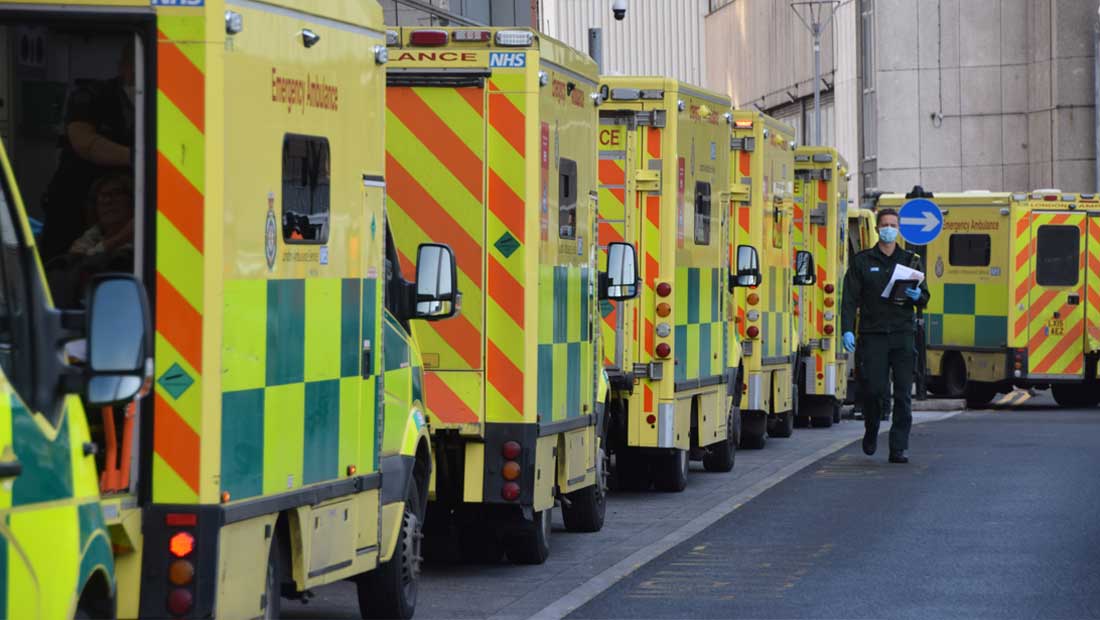Overview
The role of a pharmacy technician is extremely varied, with responsibilities including preparing medicines for dispensing, reviewing key data and compiling reports, inventory management, and facilitating collaboration with other clinical teams:
- Pharmacy technicians play a key role in supporting medication safety officers to ensure compliance and enhance patient safety
- UKCPA spoke to qualified pharmacy technicians currently working in the NHS to explore their experiences, day-to-day roles, and top tips for others considering this career
What do pharmacy technicians do?
The role of pharmacy technicians was introduced in 2011 with a view to reducing pressure on pharmacists, streamlining workflows, and improving patient care. As of July 2011, all pharmacy technicians were required to register with the General Pharmaceutical Council (GPhC), with the role evolving and adapting to changing requirements over the last decade and a half.
Pharmacy technicians’ roles include:
- Preparing prescriptions for dispensing
- Assisting with inventory management
- Enhancing patient care
- Taking patients’ drug histories
- Maintaining patient records
- Referring complex patient queries
- Informing patients about the risks and side effects of medications
- Completing operational and administrative tasks
However, their roles are continually evolving and growing to include more patient-facing and clinical activities.
The key difference between pharmacists and pharmacy technicians is:
- Pharmacists use their clinical expertise to dispense medications and advise patients on their treatment
- Pharmacy technicians work alongside pharmacists, preparing medications for dispensing, and supporting with operational tasks, but cannot dispense drugs or advise patients
With multiple responsibilities in a busy working environment, the ability to prioritise is essential for pharmacy technicians. James Stanton, a pharmacy technician at the Harrogate and District NHS Foundation Trust, says: “My tip is to be well-organised and adaptive. No matter how well planned out your day is, if an incident arrives on your desk that needs your full attention, then you’ll have to be reactive, and this will take priority, so you’ll need to be able to plan your other work around this.”
Pharmacy technicians also play a key role in helping to optimise pharmacy workflows to streamline efficiencies and improve patient care.
Where do pharmacy technicians work?
Pharmacy technicians work in a variety of settings. As they work alongside pharmacists, they may be required to work anywhere pharmacists are also present, such as:
- Community pharmacies
- Hospitals
- GP practices
- Care homes
- Prisons
- The armed forces
- The pharmaceutical industry
The day-to-day role of a pharmacy technician
From supporting improvements in medication safety to taking patients’ drug histories and shaping the future of the role, pharmacy technicians’ day-to-day responsibilities can be incredibly varied. Discover more about what the role involves, and get insights from practising technicians below:
1. Improving medication safety and governance
One of the key reasons the pharmacy technician role was introduced was to support improved safety and governance, and it remains an integral part of the job today. From maintaining detailed medication records to monitoring compliance with regulatory requirements, to conducting medication inventories and audits, there are many different ways pharmacy technicians support medication safety in order to enhance patient care.
All of the pharmacy technicians we spoke to told us they enjoy being able to make a difference to patient care. They highlighted the benefits of working across different staff groups to improve engagement with medication safety, and linking in with colleagues outside their organisation through local and national networks.
Working in medication safety provides pharmacy technicians with a variety of knowledge and skills to support their development to higher posts. For example, at Sheffield Teaching Hospitals, pharmacy technician Abigail Peckett is also the MSO for her organisation. Over at Hull University Teaching Hospitals, Michelle Chick is the pharmacy technician lead for pharmacy governance. Her responsibilities have included:
- Helping to facilitate the Trust’s Safe Medication Practice Committee
- Managing the risk register
- Chairing the pharmacy intranet committee
- Presenting at the National Medication Safety Officer (MSO) network
2. Reviewing data
Reviewing data is a central part of the role of a pharmacy technician. This may be pharmacy records, incident reports, medication records, or documents required to comply with regulatory standards.
Many pharmacy technicians are responsible for reviewing the incidents reported on their Trust incident reporting systems. James is responsible for reviewing all incidents that occur each month to identify any key themes. These are then shared at a variety of safety groups, where ideas and improvements can be used to help prevent incidents reoccurring.
Meanwhile, Liz Macneish, a pharmacy technician based in Scarborough, is tasked with producing and presenting a monthly medication incident report for her Trust Medication Safety Group. Liz enjoys manipulating data to produce reports and present information in a user-friendly way; for example, she creates quarterly reports for the Discharge Improvement Group, which has supported the development of a checklist for issuing medication on discharge.
3. Collaboration
Collaboration, clear communication, and knowledge sharing are key to improving medication safety, whether pharmacy technicians are working alongside pharmacists, MSOs, or other clinical teams.
Michelle explains: “Improving medication safety is complex, with medication being used across the healthcare system in all specialties, by many different professionals. It is important to understand and identify all key stakeholders and engage with them to successfully identify and implement positive, achievable, and sustainable changes.”
Collaboration encourages ongoing learning across departments, which can contribute to more efficient workflows, helping to ensure the timely dispensation of medications, enhancing patient experiences.
At Leeds Teaching Hospitals, Gail Briggs works closely with the nursing team to offer advice, introduce new ways of working, share learning, and build relationships between nursing and pharmacy. She manages the Patient Group Directions process and supports work relating to the safe and secure handling of medicines and controlled drugs, in addition to overseeing and managing anomalies from the Abusable Drugs investigational software system.
At the North Lincolnshire and Goole NHS Foundation Trust, Fiona Dunton takes responsibility for sharing learnings from medication incidents by producing a monthly Safer Medication Newsletter, which highlights key learning points from incidents, as well as MHRA Drug Safety Updates.
4. Taking drug histories
Pharmacy technicians are often tasked with recording patients’ drug histories, interviewing patients to obtain detailed information on their medication history, reviewing records, and cross-checking this information. They may have more time than pharmacists to complete these tasks and record the drug history clearly and concisely, ensuring it is accessible for relevant healthcare staff.
In fact, a review conducted by Christine Coleman and Jessica Tunnard, members of UKCPA, found that pharmacy technicians recorded more accurate drug histories than nurses. The study involved patients undergoing elective gynaecological surgery.
5. Reviewing labelling standards
Regular reviews of labelling standards are important to ensure continued compliance with legal and regulatory requirements, and to reduce the risk of dispensing errors. This is often a task that pharmacy technicians help with. Jo Derx, a pharmacy technician at Doncaster and Bassetlaw Teaching Hospitals, has only been in the post for six months, but has already been working on a Dispensary Improvements Project. This has involved:
- Reviewing the labelling standards in consultation with all staff grades
- Linking with the evidence to support this
- Looking at the workflow process within the dispensary
6. Raising awareness
Pharmacy technicians also play an important role in raising awareness of issues relating to medication safety to support the work of the MSO. This may involve educating patients on medication adherence, collaborating with community healthand other clinical teams, and promoting health campaigns, such as vaccination programmes.
At York Hospitals NHS Foundation Trust, Beth Laws is excited to be improving the culture of medication safety in her role as a pharmacy technician. She has been working on developing a programme of medication safety walk rounds to improve awareness of medication safety issues on wards, and to encourage staff to raise new and existing concerns. Beth is also working on improvement projects, including aiming to reduce missed doses of critical medicines by 20%.
In the same hospital, fellow pharmacy technician Jack Varey reviews complaints relating to medicines to identify any concerns or trends. He’s a member of the Trust’s Pain Management Group, completing medication safety inductions for new pharmacy staff to raise awareness of the medication safety team, how to report a medication incident, and signposts to previous learning. Jack also chairs the Dispensary Error Monitoring Group, ensuring any trends are reviewed, and measures are put in place to prevent recurrence.
7. Ongoing skills development
Continued learning and development is essential for every healthcare professional, including pharmacy technicians. When you join UKCPA, you’ll get access to expert-led training courses, focusing on all aspects of pharmacy, including clinical practice and soft skills.
Michelle advises: “Grasp all opportunities to develop within this role. This could be liaising with the wider teams to complete collaborative work, visiting neighbouring Trusts to shadow technicians in similar roles, joining safety networks to share learning, and completing any leadership training available to you.
“My role requires frequent use of software including Excel, Word and Visio. It’s also important to brush up on your IT skills, so that the most challenging aspect of your role is improving safety, not struggling with IT.”
About UKCPA pharmacy technician membership
GPhC-registered pharmacy technicians can become a UKCPA member for less than £3 a week to access:
- Extensive clinical resource libraries
- Exclusive virtual and in-person events
- Focused forum discussions on a range of topics, from medication safety to learning and development
- A calendar of networking events, where you can meet fellow pharmacy technicians to share insights and tips
Acknowledgements
This article is based on an original piece by Helen Holdsworth. Helen is the Medication Safety Officer and Deputy Chief Pharmacist at York and Scarborough Teaching Hospitals NHSFT. She chairs the Yorkshire and Humber MSO network and is also a member of the UKCPA Medicine Safety and Quality Committee.
With thanks to all the medication safety pharmacy technicians in the Yorkshire and Humber MSO network who contributed to this article:
- Gail Briggs, Leeds Teaching Hospitals
- Michelle Chick, Hull university teaching hospitals
- Joanne Derx, Doncaster and Bassetlaw
- Fiona Dunton, North Lincolnshire and Goole
- Beth Laws, York Hospitals
- Liz Macneish, Scarborough
- Abigail Peckett, Sheffield Teaching Hospitals
- James Stanton, Harrogate and District
- Jack Varey, York Hospitals


